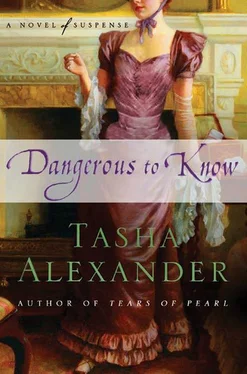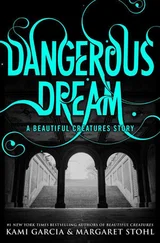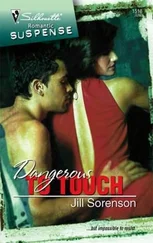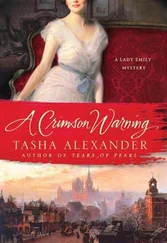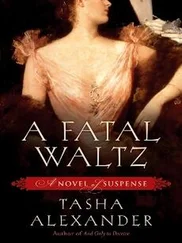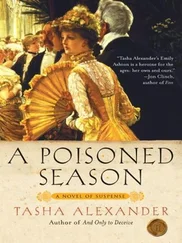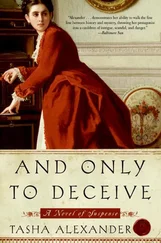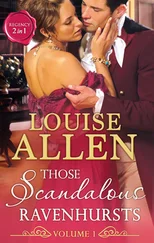This sent horrible chills running through me, and I found I had no desire to continue the conversation in such a vein. It cut too close to emotions of my own. “I had no idea about your accident,” I said. “But I, too, have felt something strange each time I’ve passed the building.”
“Did you hear anything?” she asked, coming to a sharp halt.
“Other than doves, no. Maybe some mice.”
“I’ve heard the weeping of a child.”
“When?” I asked, my blood feeling thick with sludge.
“Only a few days ago,” she said.
“Was there anyone there?”
“I couldn’t bring myself to go inside.”
“What about the windows?” I asked. The wind kicked up, bathing us in quickly cooling air. “Could you see anyone standing in them?”
“I didn’t even think to look,” she said. “The only thing I could do was run. I nearly slammed into George when I reached the garden—and could see at once that he was worried. And I do hate being the source of so much concern to him. So I pretended to be jovial, and challenged him to race me through the maze. I think you came to see us shortly thereafter.”
I had indeed. And there could be no doubt that the child I’d seen was the source of the crying Madeline had heard. I considered telling her, but hesitated. Her face, pale and drawn, looked so fragile. She was suffering a milder version—or earlier stage—of her mother’s debilitating illness. How could I reveal to her something that would only upset her further? Particularly—and I hated to admit this—when I couldn’t be sure that anyone had been standing in the dovecote.
Which made me begin, for the first time, to question the soundness of my own mind. Had grief made me, like Madeline, come unhinged? Had I not seen the ghostly girl—for I now thought of her as a ghost—I should never have considered such a thing. Yes, I had mourned. Yes, I was sad. But I had never thought the trauma I’d suffered could play tricks on my psyche. I glanced at my companion and wanted to tear straight to the dovecote, confronting these irrational thoughts, proving to myself once and for all that this was nothing more than stuff and nonsense.
“Let’s go there, Madeline,” I said, feeling at once reckless and brave. “Let’s see that there’s nothing there. That there’s nothing to be afraid of.”
“Now?”
“Yes, now.” I turned on the path, ready to set off towards the hideous place. “We can’t be daunted by things that aren’t real.”
“But what if they are real?” she asked.
“They’re not,” I said, my voice steady and firm, an illusion that bore no resemblance to the fears clouding my head. The wind blew harder, and the sky lost all its brightness to gray clouds heavy with rain. “You fell because the stairs are old and unsteady and worn. It was a terrible tragedy, but the location can hold nothing over you. There was no one left behind to weep.”
Not believing my own words, I took her by the hand and we walked. Soon the dovecote loomed before us, its tall stone walls darker than I’d remembered. Our pace slowed as we approached. Madeline gripped my arm until it hurt, but I welcomed the pain. It kept me from picturing the sad face of the lonely child.
“Must we go inside?” Madeline asked. Her features were strained, her eyes wide and vacant, her hands shaking.
“Yes,” I said, trying to muster confidence. “To confirm there’s nothing there but an empty space.” Three short steps and I was at the door. Just as I touched the handle, lightning cracked the sky and the clouds opened, pouring a sudden and apocalyptic rain on us.
Madeline shrieked, the most blood-curdling sound I’d ever heard. Thunder clapped and she cowered, shivering next to me. There was no need for us to speak. Without a word, I grabbed her and ran, top speed, all the way back to the house.
“You’re beyond drenched,” Colin said, standing close to me and whispering. “And you do know how fond I am of you drenched.” The day we had eloped, we’d stood in the pouring rain on the cliff path high above the caldera on the Greek island of Santorini, a short walk from my villa. The memory warmed me at once, but couldn’t send away entirely the fear that had filled me only moments ago. My hands were still shaking.
“I’ve been more than foolish,” I said, leaning close so only he could hear. “Let’s get home quickly, so I can confess my sins.”
“Sins? I’m all curiosity,” he said.
“You’re not thinking of leaving.” George came towards us, shaking his head as he put a tender arm around his wife. “I cannot allow it. Not when Emily is soaked to the bone. She’ll fall ill.”
“This is not Sense and Sensibility, ” I said. “Nor Pride and Prejudice. There’s an excellent literary tradition of catching the most dreadful diseases in the rain, but as I have need neither for Willoughby nor Bingley, I can assure you my health is perfectly safe.”
“Emily, you’re too amusing,” Madeline said, her voice now light and full of laughter, as if nothing out of the ordinary had happened to us at the dovecote.
“I’m glad to see you’re feeling better.” I was not quite sure what to make of her sudden transformation. My knees were trembling, my voice unsteady.
“A little rain never hurt anyone,” she said. “It was a grand adventure!”
“I don’t doubt it,” Colin said, shooting me a questioning glance. “But now I must get my wife home.”
“You must at least accept a change of clothes,” George said, turning to me. “Madeline can find you something to wear. You two couldn’t be closer in size.” The temperature had dropped radically when the rain started, and the damp cut straight through me. Standing in the cold hall of the château was not helping. I agreed to go upstairs with Madeline, who in short order found me a lovely dress. George had been right—it fit me perfectly, and we joked that we should share clothes more frequently.
I did not, however, feel entirely comfortable while we were changing. Madeline said nothing of substance, and when I tried to broach the subject of the dovecote, she laughed and told me she hadn’t been there in months and wanted to keep it that way.
“It’s not my favorite place on the estate, you see,” she said. “It’s silly, I suppose. But it’s a ghastly building.”
It was as if the conversation we’d had earlier never took place.
We made our way back to the sitting room and the gentlemen, and I watched as she sat, giggling and flirting with her husband. I was not, perhaps, being charitable, but I was horrified and wanted nothing more than to leave. Colin, excellent man that he is, recognized this with no prodding, and within five minutes, we were in our friends’ carriage, bound for my mother-in-law’s house.
“You know, my dear girl,” he said, now that we were at last alone. “I’ve had enough of other people. If you don’t object, I should like to have you all to myself for the rest of the afternoon and evening.”
“Your mother won’t like it.”
“She’s survived worse.” He traced the line of my jaw with his finger. “I’m worried about you. You don’t seem yourself.”
“I’m not,” I said, looking out the window. “Everything seems off to me. And I keep getting overcome with bad feelings.”
“That’s to be expected.” He took my hand and rubbed it. “You’re doing magnificently well considering all you’ve been through.”
“One minute I’m fine, the next I’m in tears. And then there are times when…” I sighed. “It’s too ludicrous.”
“Nothing is too ludicrous to tell me.”
“I’ve reconciled myself to what has happened. I couldn’t have done that without you. Obviously your mother and I aren’t becoming fast friends, which is disappointing, but not the end of the world. But then there was poor Edith and now…”
Читать дальше
